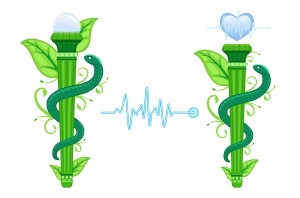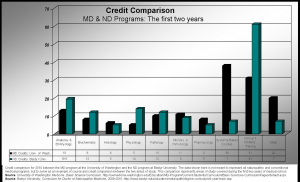 As most of you may know, I have been studying in order to obtain my license to practice as a Naturopathic Doctor in Ontario. As a result, I have had the opportunity to become more familiar with the side effects of many of the conventional and natural therapies. Yes, I did say side effects of natural therapies. It may come as a surprise to many, but natural therapies that are available may have some side effects that need to be known. Many individuals treat supplementing with nutraceuticals as if there are no potential ill effects from doing so. Unbeknownst to them, this is much like hearing a clunk in your car, and looking online for the solution, then fixing it yourself. Many steps are missed when this type of approach is made. For example: what is the quality of the part you are putting into the car, what if you put the part in wrong, are there extra parts that need to be changed or altered in order for the new part to function at its best, is the source a credible one for you to receive your information, and the list goes on. That being said, one should not simply look up their symptoms on – line, and supplement accordingly. Much like you would consult a mechanic for repairs to your vehicle, you should do the same in regards to “repairs to your body”. Whether it is a naturopathic doctor or another health care provider, their advice should be sought when it comes to taking supplements or changing doses in general. In addition, when discussing medications or supplements, it is important to be transparent and honest with your various health care providers about all forms of treatment that you are receiving. This mindset when dealing with health care providers ensure medications and supplements do not interact and cause you harm, and also ensures that you receive the most appropriate guidance in regards to your health.
As most of you may know, I have been studying in order to obtain my license to practice as a Naturopathic Doctor in Ontario. As a result, I have had the opportunity to become more familiar with the side effects of many of the conventional and natural therapies. Yes, I did say side effects of natural therapies. It may come as a surprise to many, but natural therapies that are available may have some side effects that need to be known. Many individuals treat supplementing with nutraceuticals as if there are no potential ill effects from doing so. Unbeknownst to them, this is much like hearing a clunk in your car, and looking online for the solution, then fixing it yourself. Many steps are missed when this type of approach is made. For example: what is the quality of the part you are putting into the car, what if you put the part in wrong, are there extra parts that need to be changed or altered in order for the new part to function at its best, is the source a credible one for you to receive your information, and the list goes on. That being said, one should not simply look up their symptoms on – line, and supplement accordingly. Much like you would consult a mechanic for repairs to your vehicle, you should do the same in regards to “repairs to your body”. Whether it is a naturopathic doctor or another health care provider, their advice should be sought when it comes to taking supplements or changing doses in general. In addition, when discussing medications or supplements, it is important to be transparent and honest with your various health care providers about all forms of treatment that you are receiving. This mindset when dealing with health care providers ensure medications and supplements do not interact and cause you harm, and also ensures that you receive the most appropriate guidance in regards to your health.
In order to bring some context to the discussion, we will take a look at Aloe Vera Gel. The internet has been useful in discussing the beneficial effect of aloe vera gel on the digestive system and how it can aid in the digestive process, gastritis, irritable bowel disease, etc. However, individuals may not realize that this impact on digestion could also cause other medications to have decreased absorption if taken around the same time. As a result, it is best to seek the advice of health care providers such as a Naturopathic Doctor in order to guarantee that supplements are taken correctly. In addition, many do not realize that aloe vera gel can have an additive effect with medications for diabetes or increased blood sugars. So, if someone was taking diabetic medication and aloe vera gel, they could become quite dizzy or worse, unconsciousness, and lead to a medical emergency. As one can see, it is important to discuss all supplements with your Naturopathic Doctor or health care provider. A Naturopathic Doctor has had at least 8 years of training, which can provide a great deal of information, much beyond that of a google search.
Have you benefitted from reading this blog? Know someone that would benefit as well? Share, Like, Comment, or Tweet this article, and let me know what you think.
Some of the information provided above may not be appropriate for everyone, please consult with your doctor before trying any of the above. If you are interested in Naturopathic Medicine and wanting a different approach to your health care needs, contact Elisha Cook via the contact portion of this website.



